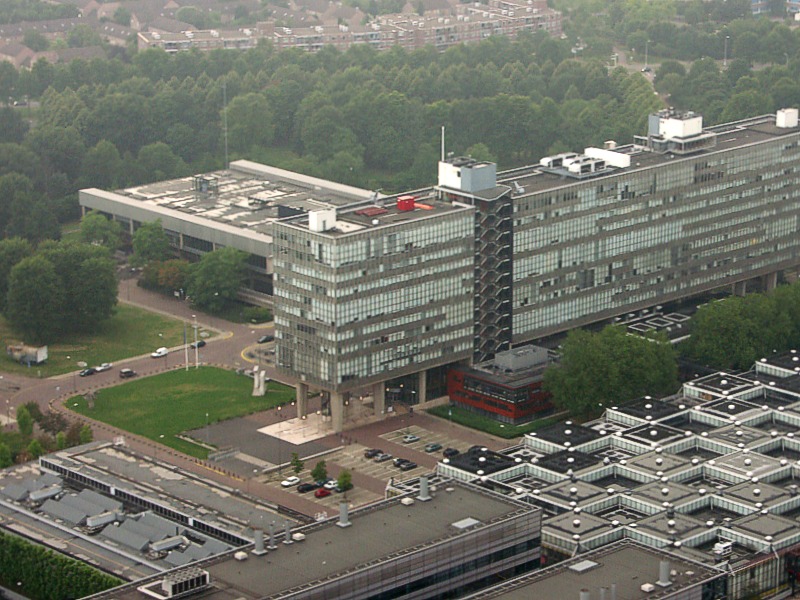Increasingly complex 3D shapes are used as Semicon devices, requiring advanced metrology techniques to monitor production and understand performance of the devices. Atomic force microscopy allows to reach the required sub-nm accuracy by using relatively blunt probes, sensing always in the same direction, but only the top of the 3D shapes can be explored. This project aims to enable the use of nanotube-based probes to scan the profile on the samples with more challenging topographies. The nanotube probe shape strongly improves how well holes or trenches in the sample can be accessed. However, the slender probes become weaker in lateral direction, while sensitivity in this direction is also needed to thoroughly scan the samples.
This PhD Position aims to provide the control techniques required to keep the probe in proximity of the sample and to ensure that the metrology objectives are achieved. Control challenges on the nanotube-based profiling include 1) navigation of the probe towards the point of interest on the sample; 2) facilitating the 2D profile sensing and selecting the correct sensing direction for this part of the sample; and 3) profile reconstruction based on measurement signals. This PhD will contribute to these challenges as follows. 1) Based on realtime-measurement data, the control should plan a path along the sample profile and optimise the sensing direction such that enough profile measurements are generated along the sample contour, minimising blind spots. 2) Two-dimensional profile information is needed at high rates to allow the real-time path planning, making the required driving signals and signal analyses a nontrivial task. Dynamical sensing methods are foreseen to achieve acceptable accuracy. 3). Estimation technique exploiting the known stage dynamics, as well as the modelled probe dynamics, will be incorporated to provide highly accurate profile information. First experiments demonstrating (elements of) these control concepts are foreseen.
The PhD Candidate will be partially located at TNO Optomechatronics, Delft and partially at the TU/e Dynamics and Control group.
Job requirements
- A master’s degree (or an equivalent university degree) in Mechanical Engineering, Electrical Engineering, Mechatronics, Physics, or any related field.
- A research-oriented attitude.
- Ability to work in a team and interested in collaborating with the industrial partners.
- Fluent in spoken and written English.
Conditions of employment
- A meaningful job in a dynamic and ambitious university with the possibility to present your work at international conferences.
- A full-time employment for four years, with an intermediate evaluation (go/no-go) after nine months.
- To develop your teaching skills, you will spend 10% of your employment on teaching tasks.
- To support you during your PhD and to prepare you for the rest of your career, you will make a Training and Supervision plan and you will have free access to a personal development program for PhD students (PROOF program).
- A gross monthly salary and benefits (such as a pension scheme, pregnancy and maternity leave, partially paid parental leave) in accordance with the Collective Labor Agreement for Dutch Universities.
- Additionally, an annual holiday allowance of 8% of the yearly salary, plus a year-end allowance of 8.3% of the annual salary.
- Should you come from abroad and comply with certain conditions, you can make use of the so-called ‘30% facility’, which permits you not to pay tax on 30% of your salary.
- A broad package of fringe benefits, including an excellent technical infrastructure, moving expenses, and savings schemes.
- Family-friendly initiatives are in place, such as an international spouse program, and excellent on-campus children day care and sports facilities.
Information and application
Do you recognize yourself in this profile and would you like to know more About the positions? Please contact prof.dr. Henk Nijmeijer, H.nijmeijer[at]tue.nl or dr. Hamed Sadeghian Marnani, h.sadeghian.marnani[at]tue.nl or prof.dr.ir. N. van de Wouw, N.v.d.Wouw[at]tue.nl.
For information about terms of employment, click here or contact HR Services, HRServices.Gemini[at]tue.nl.
Please visit www.tue.nl/jobs to find out more about working at TU/e!
Application
We invite you to submit a complete application by using the 'apply now'-button on this page.
The application should include a:
- Cover letter in which you describe your motivation and qualifications for the position.
- Curriculum vitae, including a list of your publications and the contact information of three references.
- Brief description of your MSc thesis.
Please keep in mind you can upload only 5 documents up to 2 MB each. If necessary, please combine files.
We look forward to your application and will screen it as soon as we have received it.
We do not respond to applications that are sent to us in a different way.

.jpg/1200px-Kommunehospitalet_(Copenhagen).jpg)

